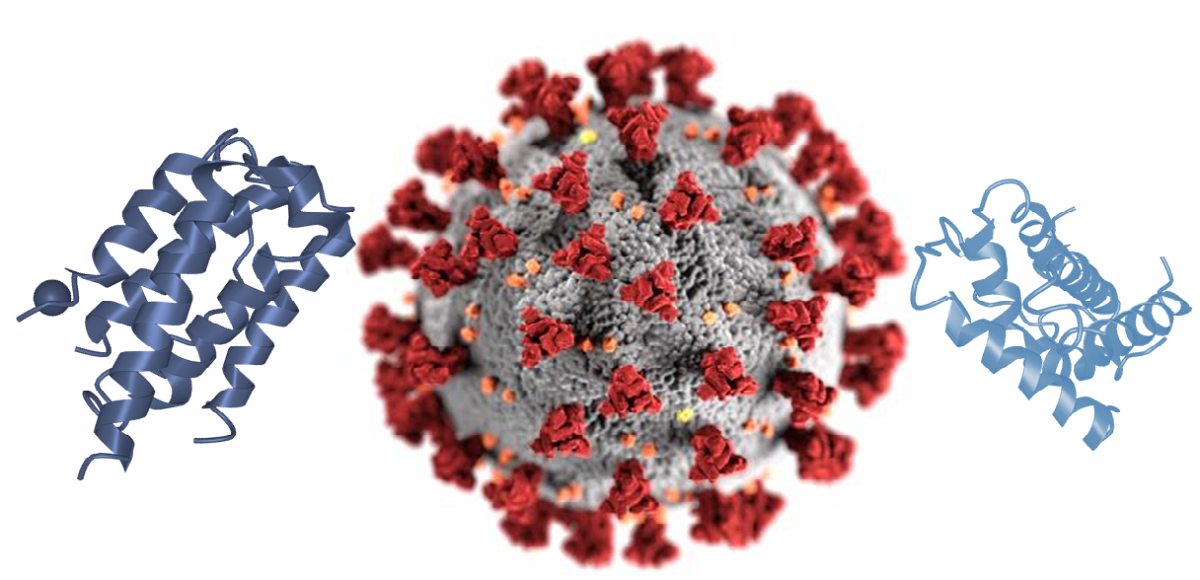COVID-19 Immunophenotyping: Korean Study Shows That Type I Interferon Is Pivotal Inflammatory Factor In Severe COVID-19 Cases
Source: COVID-19 Immunophenotyping Jul 19, 2020 5 years, 6 months, 3 weeks, 6 days, 19 hours, 48 minutes ago
COVID-19 Immunophenotyping: A major of the sign of SARS-CoV-2 infection is the broad-spectrum of disease severity. COVID-19 usually results in a mild disease course that resolves on its own. However, about 8 to 12% of patients develop severe symptoms that require intensive care with mechanical ventilation. Understanding this distinction, and uncovering the cause of the difference between mild disease versus severe, has been the focus of many COVID-19 researchers. The role of the immune modular interferon (IFN) is at the center of some of the leading hypotheses.

A team of scientist from the Republic of Korea has worked to unravel patients’ immune responses, performing single-cell RNA-seq using peripheral blood mononuclear cells (PBMCs) obtained from healthy donors, patients with mild or severe COVID-19, and patients with severe influenza. Their findings suggest that the type I IFN response “plays a pivotal role in exacerbating inflammation in severe COVID-19.”
Their research findings are published in
the journal Science Immunology.
https://immunology.sciencemag.org/content/5/49/eabd1554
The detailed single-cell RNA sequencing analysis of more than 59,000 cells (PBMCs) from three different patient cohorts provides a detailed look at patients’ immune responses to severe cases of COVID-19.
The research team, led by Dr Seong Seok Lee at the Graduate School of Medical Science and Engineering, Korea Advanced Institute of Science and Technology (KAIST), sequenced the RNA from a total of 59,572 blood cells obtained from four healthy donors, eight patients with mild or severe COVID-19, and five patients with severe influenza.
Patients exhibiting both the mild and severe COVID-19 cohorts all showed increased regulation of the TNF/IL-1ß-driven inflammatory response, while patients with severe COVID-19 also exhibited an increased IFN-I response. By comparison, patients with severe flu showed increased expression of various IFN-stimulated genes, but did not experience TNF/IL-1ß responses as seen in COVID-19 patients. Unlike the flu cohort, patients in the severe COVID-19 cohort exhibited the IFN-I signature concurrently with TNF/IL-1ß-driven inflammation a combination also not seen in patients with milder cases of COVID-19.
The researchers noted noted that patients with COVID-19 exhibited “hyper-inflammatory signatures across all types of cells among PBMCs, particularly up-regulation of the TNF/IL-1β-driven inflammatory response as compared to severe influenza.” They added that in classical monocytes from patients with severe COVID-19, “type I IFN response co-existed with the TNF/IL-1β-driven inflammation, and this was not seen in patients with milder COVID-19.”
The study results suggest that patients with severe COVID-19 experience increased regulation of the type I interferon (IFN-I) inflammation-triggering a pathway signature that the researchers also observed in patients hospitalized with severe cases of influenza.
By also comparing COVID-19 and severe influenza, the team noted that they could observe that “the TNF/IL-1β-driven inflammatory response was dominant in COVID-19 across a
ll types of cells among PBMCs, whereas the up-regulation of various interferon-stimulated genes (ISGs) was prominent in severe influenza.”
The Korean researchers propose that the IFN-I response exacerbates inflammation in patients with severe COVID-19. Their results, along with past mouse studies that highlight how the timing of IFN-I expression is critical to determining the outcome of SARS-CoV-2 infection, support targeting IFN-I as a potential treatment strategy for severe COVID-19.
Thailand Medical News would like to point out that this findings contradicts certain past studies that advocate the usage of interferons as a treatment protocol in COVID-19 patients and also it contradicts a recent French study that indicated using low levels of type-I IFN as a biomarker to determine disease severity progression.
https://www.thailandmedical.news/news/covid-19-diagnostics-french-researchers-advocate-utilizing-type-1-interferon-deficiency-as-biomarker-for-covid-19-patients-at-risk-of-severity
However as both studies were peer-reviewed and published, we hope that the scientific community could shed more light on both these studies.
For more about
COVID-19 Immunophenotyping, please keep on logging to Thailand Medical News.
